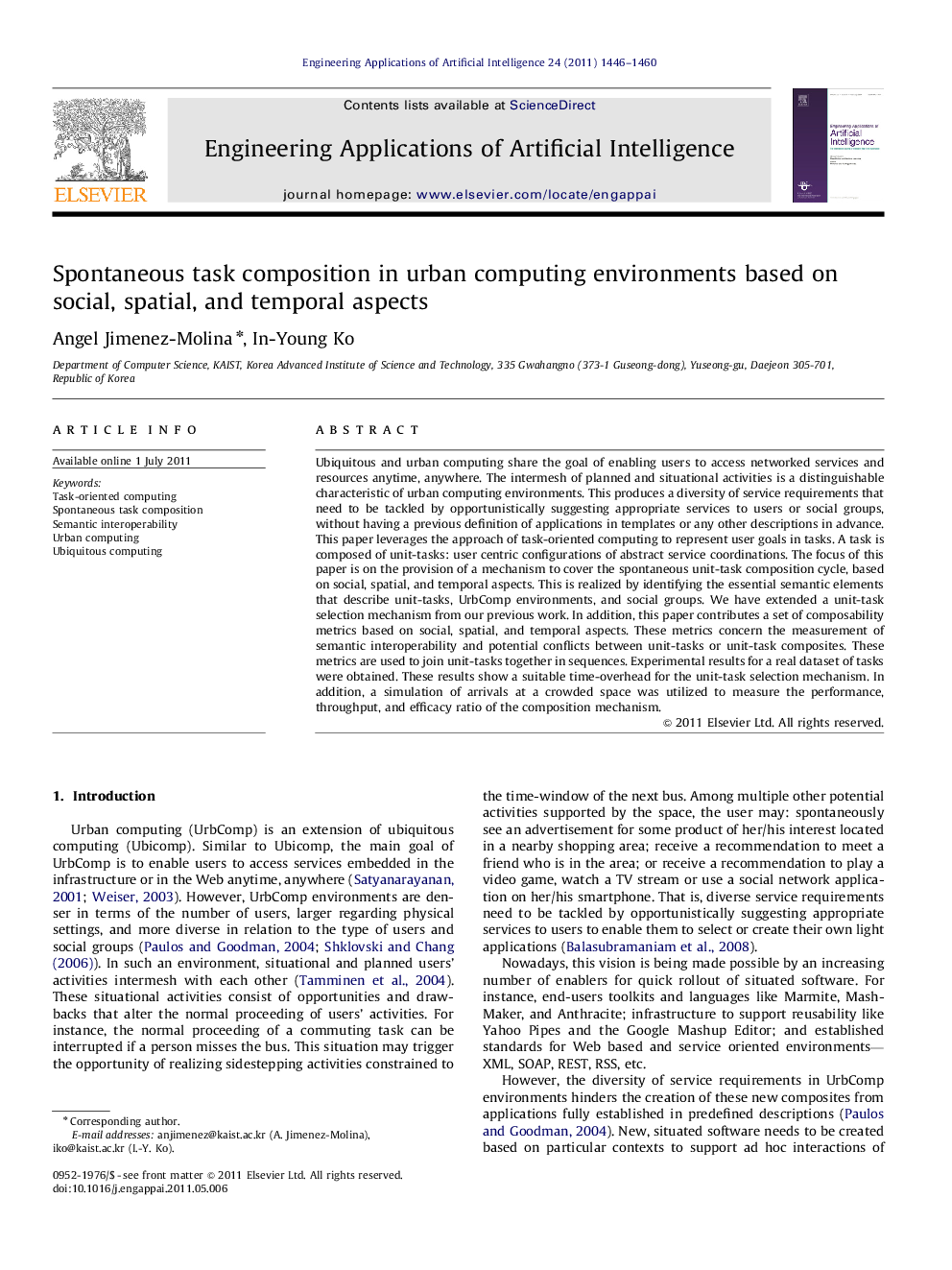| کد مقاله | کد نشریه | سال انتشار | مقاله انگلیسی | نسخه تمام متن |
|---|---|---|---|---|
| 380990 | 1437470 | 2011 | 15 صفحه PDF | دانلود رایگان |

Ubiquitous and urban computing share the goal of enabling users to access networked services and resources anytime, anywhere. The intermesh of planned and situational activities is a distinguishable characteristic of urban computing environments. This produces a diversity of service requirements that need to be tackled by opportunistically suggesting appropriate services to users or social groups, without having a previous definition of applications in templates or any other descriptions in advance. This paper leverages the approach of task-oriented computing to represent user goals in tasks. A task is composed of unit-tasks: user centric configurations of abstract service coordinations. The focus of this paper is on the provision of a mechanism to cover the spontaneous unit-task composition cycle, based on social, spatial, and temporal aspects. This is realized by identifying the essential semantic elements that describe unit-tasks, UrbComp environments, and social groups. We have extended a unit-task selection mechanism from our previous work. In addition, this paper contributes a set of composability metrics based on social, spatial, and temporal aspects. These metrics concern the measurement of semantic interoperability and potential conflicts between unit-tasks or unit-task composites. These metrics are used to join unit-tasks together in sequences. Experimental results for a real dataset of tasks were obtained. These results show a suitable time-overhead for the unit-task selection mechanism. In addition, a simulation of arrivals at a crowded space was utilized to measure the performance, throughput, and efficacy ratio of the composition mechanism.
► Urban computing as an enabler to access services and resources anytime, anywhere.
► Service requirements tackled by opportunistically suggesting them to social groups.
► Abstract representation of services in tasks.
► Spontaneous service composition, based on social, spatial, and temporal aspects.
► Metrics to measure semantic interoperability and potential conflicts between tasks.
Journal: Engineering Applications of Artificial Intelligence - Volume 24, Issue 8, December 2011, Pages 1446–1460